The Truth Commission, an institution that was born from the 2016 peace agreements, interviewed almost 30,000 people who have lived through the war in Colombia with one question in mind: “why, despite the multiple peace agreements and processes , the armed conflict has not managed to end completely” The country has suffered at least six decades of violence in which the military, liberal guerrillas, leftist guerrillas, paramilitary groups, and drug cartels entered into confrontation.
And along with them were politicians, businessmen, judges, victims in some cases, perpetrators in others.
Despite various peace agreements, the war persists in some parts of the country.
The Truth Commission delivered an extensive report on Tuesday, more than 800 pages long, on its main findings and its recommendations to stop the war.
A National Pact for Coexistence
More than 90% of the victims of the war, says the report, are civilians, if only homicides and disappearances are taken into account.
If all forms of violence are taken into account, there are approximately 9 million victims, 20% of the country's population.
The armed groups - paramilitaries, guerrillas, Armed Forces and Police - are the "most responsible".
The Commission recommends, in the short term, a national political pact promoting regional and local dialogues to "definitively reject violence as a means of conflict resolution."
In the medium term, it recommends a reform of the political and electoral system that allows better representation of the different regions of the country and, in particular, of rural areas and of the victims.
And to quickly protect the lives of those still threatened by violence,
Resume dialogue with the ELN guerrilla
In addition to implementing the peace agreement with the former FARC, the report recommends resuming dialogue with the ELN, the last active guerrilla group in Colombia.
Of an urgent nature, the commissioners assured, humanitarian measures must be established, regional humanitarian agreements to de-escalate this violence.
“It is urgent that society send a message not to tolerate more weapons or in the name of the noblest ideals.
It is not legitimate to have the weapons to defend an idea,” said Commissioner Marta Ruiz.
The ELN grew stronger during the government of Iván Duque and, as of 2021, had more than 5,180 combatants.
A new Ministry for Peace and Reconciliation
The idea of this new institution is that it "lead the implementation and articulate the institutions, programs and policies aimed at recognizing the victims, the generation of conditions of coexistence and trust between citizens and between citizens and the State, and, in general, to reconciliation."
The different peace processes in Colombia have generated a bureaucracy that is difficult to access, and for this reason this Ministry would coordinate the work carried out by the Victims Unit, the Museum of Memory, the court of the Special Jurisdiction for Peace, the Unit of Search for Missing Persons, the Office of the High Commissioner for Peace, and the Ombudsman's Office.
Sustainable territorial development
The comprehensive rural reform, which had been negotiated in the Peace Agreement between the former FARC and the government of Juan Manuel Santos in 2016, was stopped under the government of Iván Duque.
The Truth Commission asks to resume the reform effort, in addition to promoting relationships of trust between rural sectors and the government to guarantee the rights of those who live in the countryside.
Retake, for example, the effort to make a multipurpose cadastre, and the formation of Peasant Reserve Zones.
The Commission says that it is necessary to distribute land to peasants who do not have it (it considers the figure of at least three million hectares for these).
He also talks about making these transformations while protecting the environment, and asks the government to ratify the Escazú environmental agreement.
Separate the National Police from the Ministry of Defense
According to the report, "to the extent that the National Police was subsumed into the Armed Forces and the Ministry of Defense, it was also involved in the military doctrine and mentality of the internal enemy."
This has resulted in the fact that it attends to the mobilizations and social protest “as if they were a war that threatens the existence of the State” and, therefore, not only does it not protect the citizen who mobilizes, but also repels them as an enemy.
In addition, in other areas, the Police "mix the prosecution of crime with the war against an enemy of the conflict, and end up persecuting the coca grower more than the armed actor himself."
The recommendation is to locate it in another Ministry, or in a new one, to advance in the strengthening of its civil character.
The end of the riot police, ESMAD
In the long term, in order to protect social protest, the Commission recommends: prohibiting militarization in the event of disturbances during a demonstration;
new measures to prevent the use of the penal system against demonstrators;
avoid police actions to repress protests.
Just as President-elect Gustavo Petro did in the campaign, the Commission asks the government to "reform or eliminate ESMAD," as the riot squads are known.
Strengthen disciplinary controls to military forces
The confidentiality of intelligence and national security information, the use of reserved expenses and the informality of the use of public resources for security tasks facilitated the commission of crimes, says the Report.
And they allowed, as the ordinary justice demonstrated, that the Armed Forces and other security organizations such as the DAS denied their participation in the events "or that their resources had financed human rights violations such as arbitrary detentions, torture, forced disappearances, executions extrajudicial actions or the criminal action of paramilitary groups”.
Given this, it recommends strengthening preventive and disciplinary controls to supervise the Military Forces and the Police.
Military criminal justice must not judge human rights violations
The Final Report states that the military criminal justice system operated as a "mechanism of impunity for decades" and even played a cover-up role in cases of extrajudicial executions.
Given this, he proposes to hold a public debate on the advisability of maintaining the Military Criminal Jurisdiction, and also to make adjustments so that the Prosecutor's Office assumes responsibility for punishable conduct by the Police and Army, "with the exception of typically military ones."
That is to say, that the Military Justice does not investigate or judge in any case the violations of human rights and infractions of International Humanitarian Law.
Control private security and the arms trade
The delegation of public security by forming groups of civilians and equipping them with weapons for private use to support the tasks of defense and public security that correspond to the state forces deepened, prolonged and degraded the war, says the Report.
For this reason, the Truth Commission recommends effective control of surveillance and private security departments to prevent "them from becoming involved in illegal actions."
It also proposes to strengthen the legislation and procedures for the control and trade of legally authorized firearms in the country, as well as their carrying and possession, "based on a characterization of the functioning of the legal and illegal market for weapons and ammunition."
Change the country's security model for one focused on peace
The report points out that the country is affected by a model that confuses security with defense and that this vision of security, "based on the persecution of the guerrillas" and the discourse of the internal enemy, "has led to the commission of crimes of extreme severity”.
These crimes were committed both by the State forces and by the paramilitaries against the actions of the guerrillas, "and have destroyed the security of non-combatant civilians and, in general, the tranquility of the country."
Given this, he makes eight recommendations, including that the Police and the Army be directed and led by civilians and a profound security reform.
For this, he proposes that an international commission and an accidental one of the Congress of the Republic be created to accompany this process of transformation.
Change the culture of war for one of peace
The Commission made a special chapter on the culture of war, in which it talks about that discourse of the internal enemy.
With the war, the identities of the enemy have been inherited and transmitted;
the logics of hate, fear, stigmatization, revenge, accusation, resentment, anger and dehumanization that characterize the conflict”, says the report.
It then makes a series of recommendations that are addressed to the education sector and the media.
The Ministry of Education recommends "didactic adaptations of the final report of the Commission", in addition to strengthening teacher training to promote "coexistence, the promotion of human rights, peace, memory and truth".
The media, on the other hand,
Do not allow military promotions investigated for false positives
The enemy within doctrine facilitated extrajudicial killings known as false positives.
“During the mandate of Álvaro Uribe, a government policy was consolidated that had the support of other branches of public power to increase the death toll of the enemy, legitimize the official security policy and publicize its effectiveness,” the report states.
For the Truth Commission, "by favoring deaths in combat over any other military result, serious violations of human rights and infractions of IHL were encouraged."
Former President Uribe, through his Democratic Center party, responded that there was no
body count policy
and that thanks to the policies of his government "false positives are over."
During his speech, Francisco de Roux, president of the Commission, said that "the damage caused by this crime to the nation's ethics is immeasurable."
The bulk of these cases occurred between 2002 and 2008. "These crimes were propitiated by a system of legal and extralegal provisions born from the Government itself and implemented by the Military Forces," the document adds.
Given this fact, the Final Report recommends, among other things, not to allow military promotions with credible complaints or open proceedings against them —by action or omission— in cases of serious violations of human rights and breaches of IHL, or in cases of links and collusion with illegal armed groups and organized crime.
A new approach to drugs
The report says that "all the actors involved in the armed conflict directly or indirectly have had relations with drug trafficking," such as the guerrillas, the paramilitary groups, but also various politicians and sectors of the public force.
The State, influenced by the United States since the 1980s, declared war on drug traffickers but ended up also declaring war on many more, such as the peasants.
"The coca grower was accused of being a « drug grower »", he says.
Drug money has also been an obstacle to the country's democratization, financing campaigns and "distorting the possibilities of real competition."
Like experts around the world, the Report agrees that the war on drugs has been a failure.
For this reason, it recommends prioritizing crop substitution over any other form of eradication, with the participation of rural communities in areas where cocaine is grown and produced.
It also insists on addressing the issue of consumption from a public health perspective, and making a political reform to sanction those who are allies of drug trafficking.
But in the long term, and at an international level, he believes that Colombia should promote "a major international conference to make an objective evaluation of the fight against drugs and move forward in building consensus around the adjustments that need to be made."
It also insists on addressing the issue of consumption from a public health perspective, and making a political reform to sanction those who are allies of drug trafficking.
But in the long term, and at an international level, he believes that Colombia should promote "a major international conference to make an objective evaluation of the fight against drugs and move forward in building consensus around the adjustments that need to be made."
It also insists on addressing the issue of consumption from a public health perspective, and making a political reform to sanction those who are allies of drug trafficking.
But in the long term, and at an international level, he believes that Colombia should promote "a major international conference to make an objective evaluation of the fight against drugs and move forward in building consensus around the adjustments that need to be made."
Civil third parties must be investigated
The report mentions at various points the political and economic sectors that benefited from the armed conflict, and that have not been investigated in the transitional justice processes that shelter the armed actors.
For example, in the court of Special Jurisdiction for Peace (JEP), only members of the former FARC guerrilla and the military forces can testify.
The Commission recommends opening a door for third parties, although it does not specify in which court.
It asks government institutions to "guarantee the prioritization of the investigation against civilian third parties and State agents."
Slower with extradition
The Truth Commission asks the president, in the event that there is an extradition request for an armed or civilian actor, to give priority first to "the investigation, prosecution and punishment in Colombia", before approving the extradition. .
Roux's father, president of the Truth Commission, explained at the press conference that extradition has been an obstacle against truth processes in Colombia.
For example, in 2008, the Uribe government was criticized for the massive extradition of several paramilitary leaders who were involved in the truth process included in the Justice and Peace agreement.
More recently, the government of Iván Duque was criticized for the extradition of Dairo Antonio Usuga, alias
Otoniel
, former head of the Clan del Golfo, despite the fact that several victims' organizations asked that he not be extradited.
Subscribe here
to the EL PAÍS newsletter on Colombia and receive all the key information on the country's current affairs.

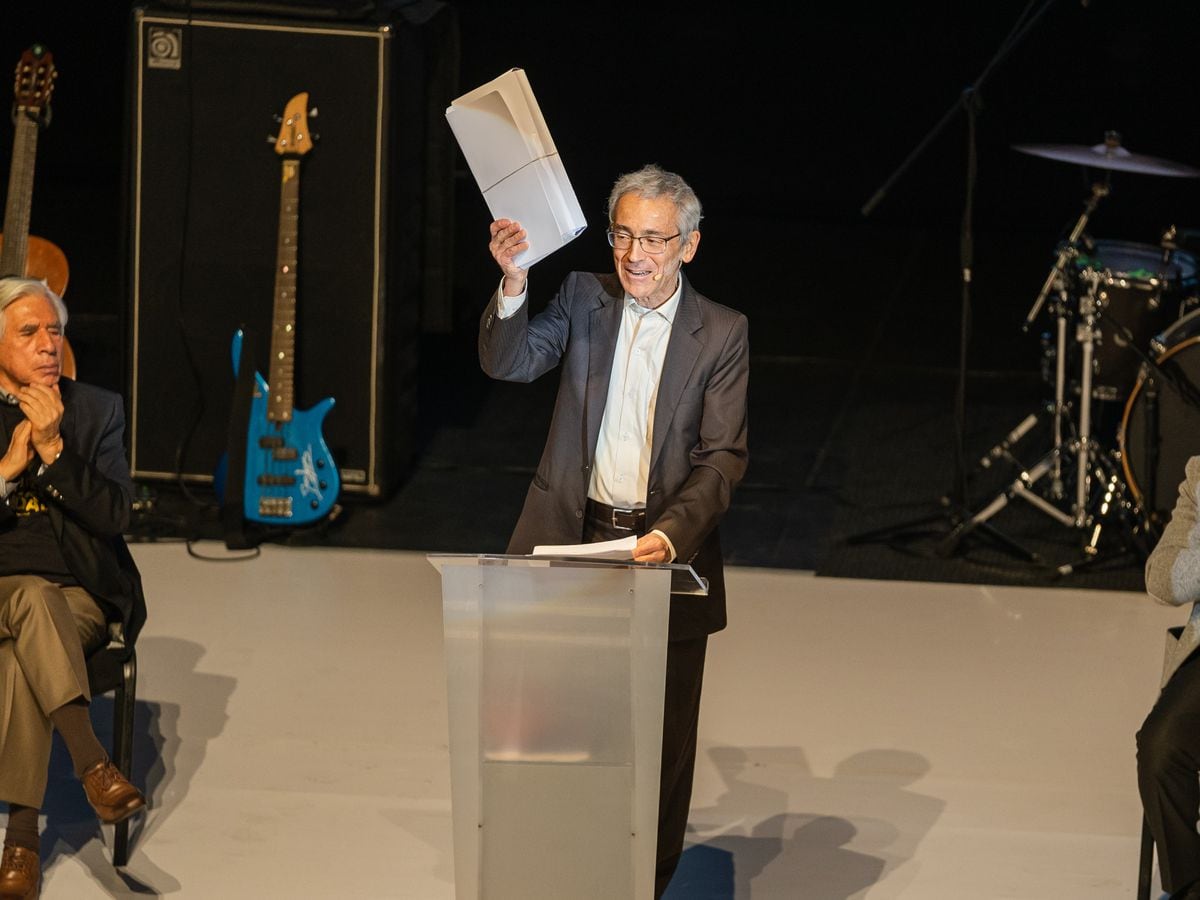
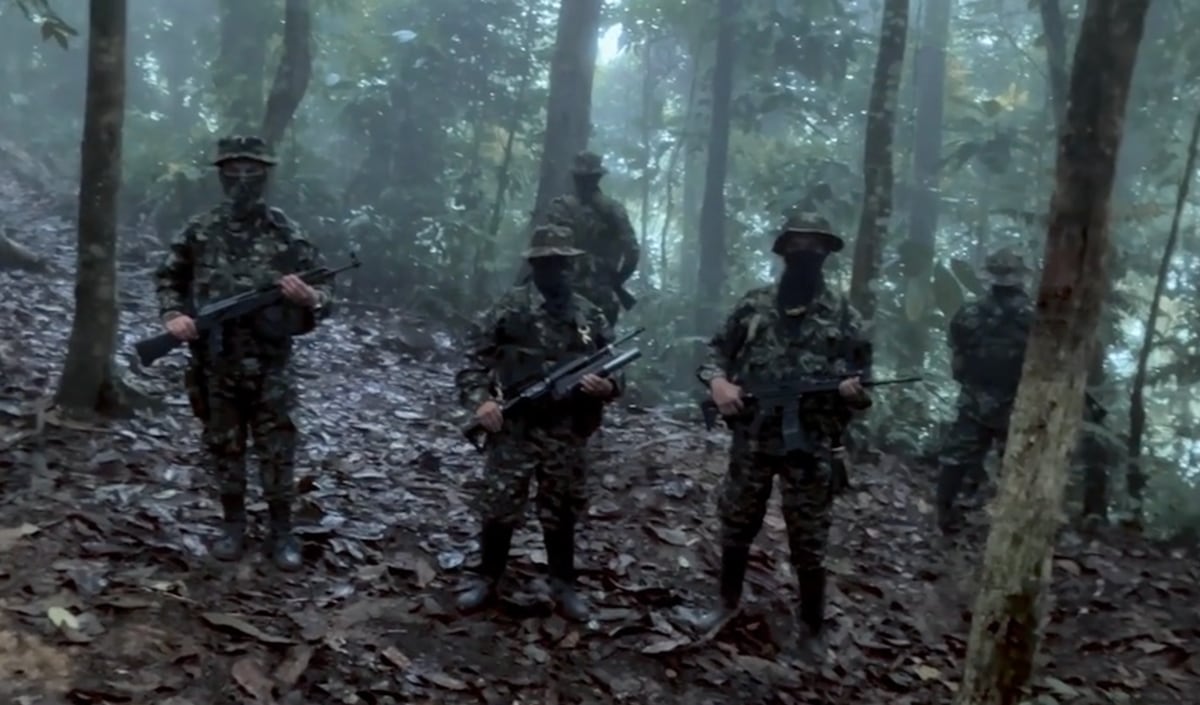

/cloudfront-eu-central-1.images.arcpublishing.com/prisa/EVSKKGOZHPTBCJL2XV22X45PVY.jpg)
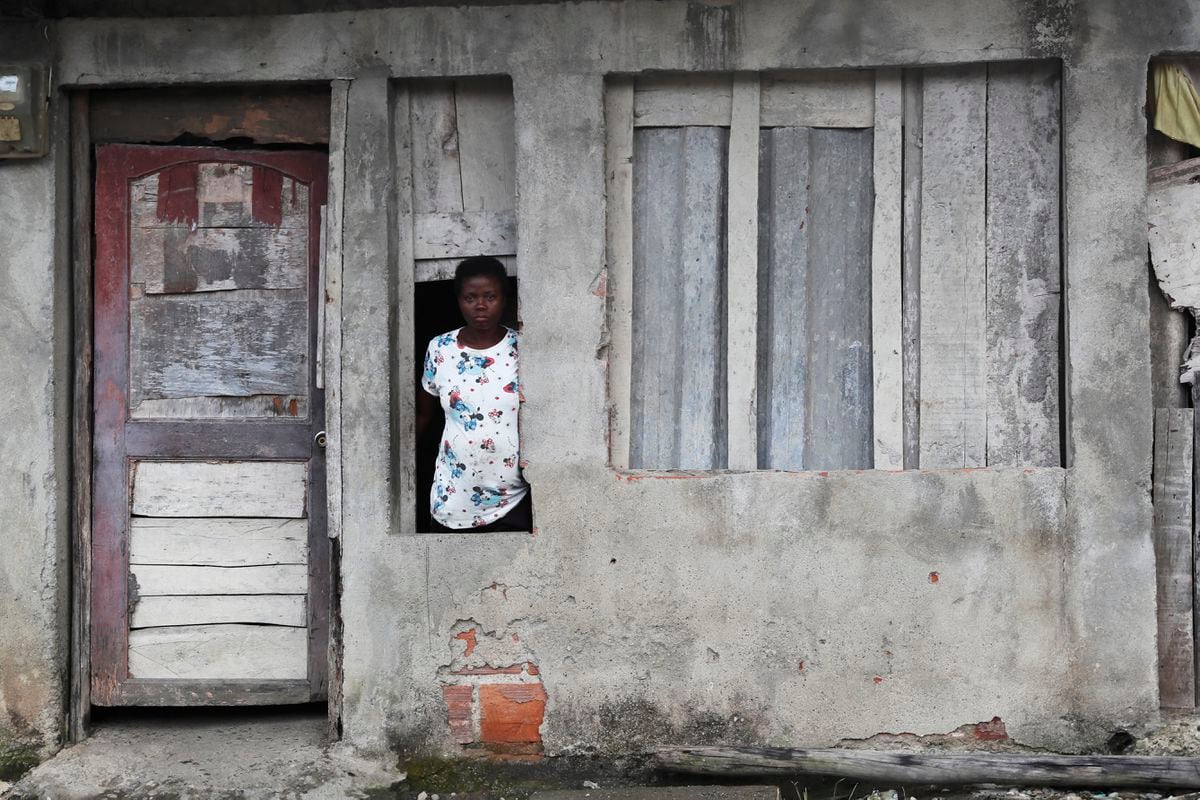
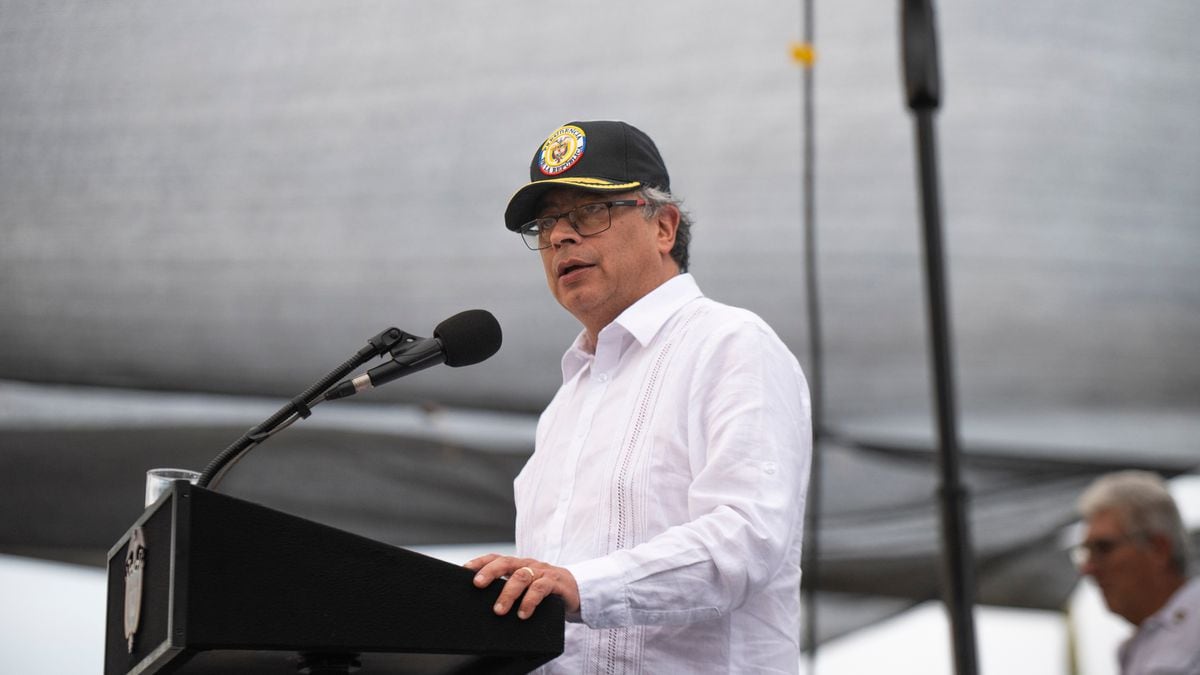
/cloudfront-eu-central-1.images.arcpublishing.com/prisa/NCQFUQJJ4ZHRJLKNWPLQ2MFQR4.jpeg)
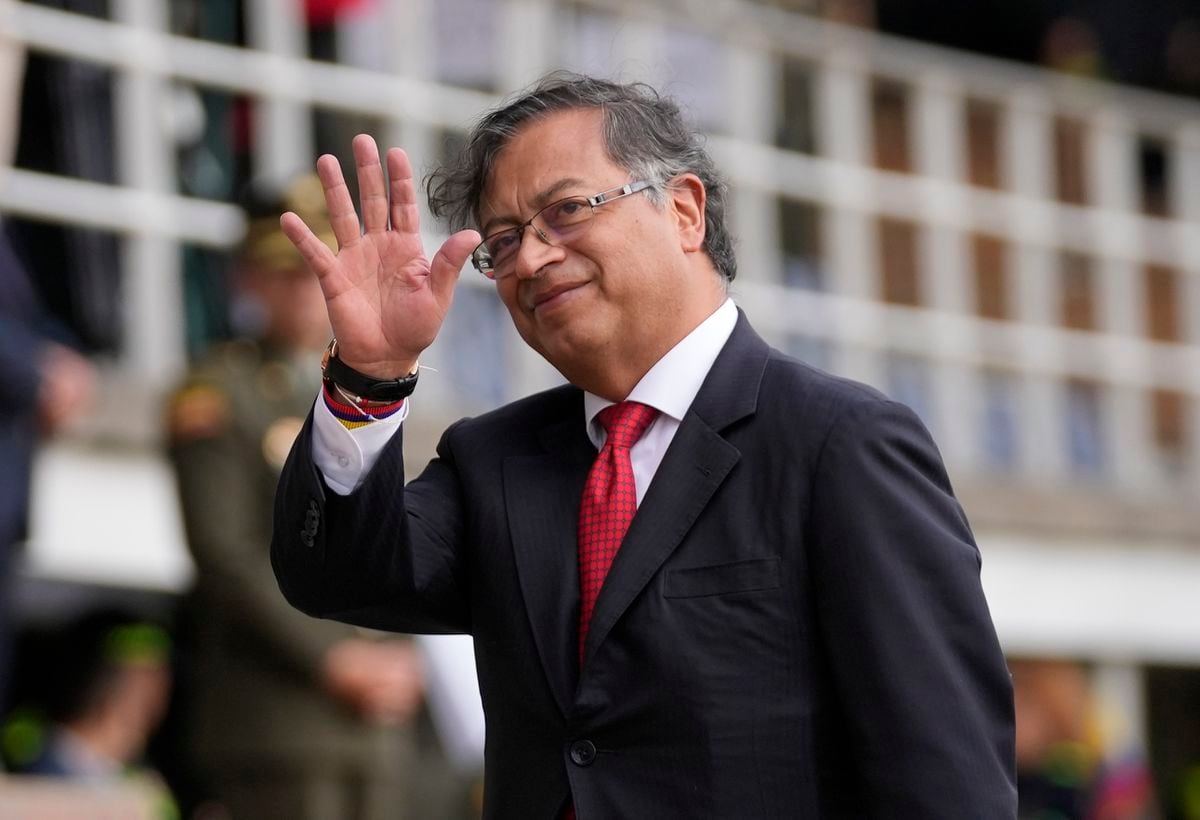
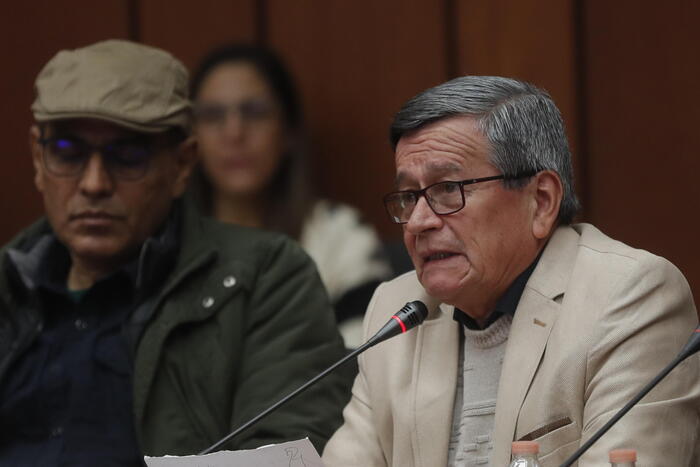


/cloudfront-eu-central-1.images.arcpublishing.com/prisa/KMEYMJKESBAZBE4MRBAM4TGHIQ.jpg)


